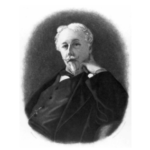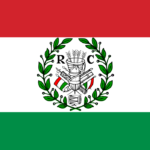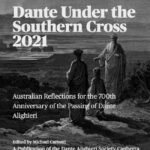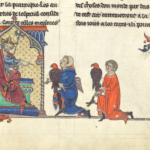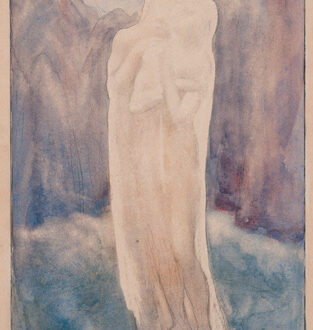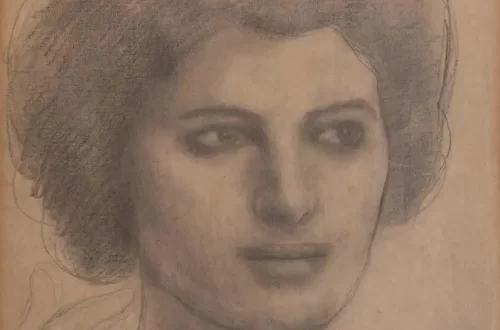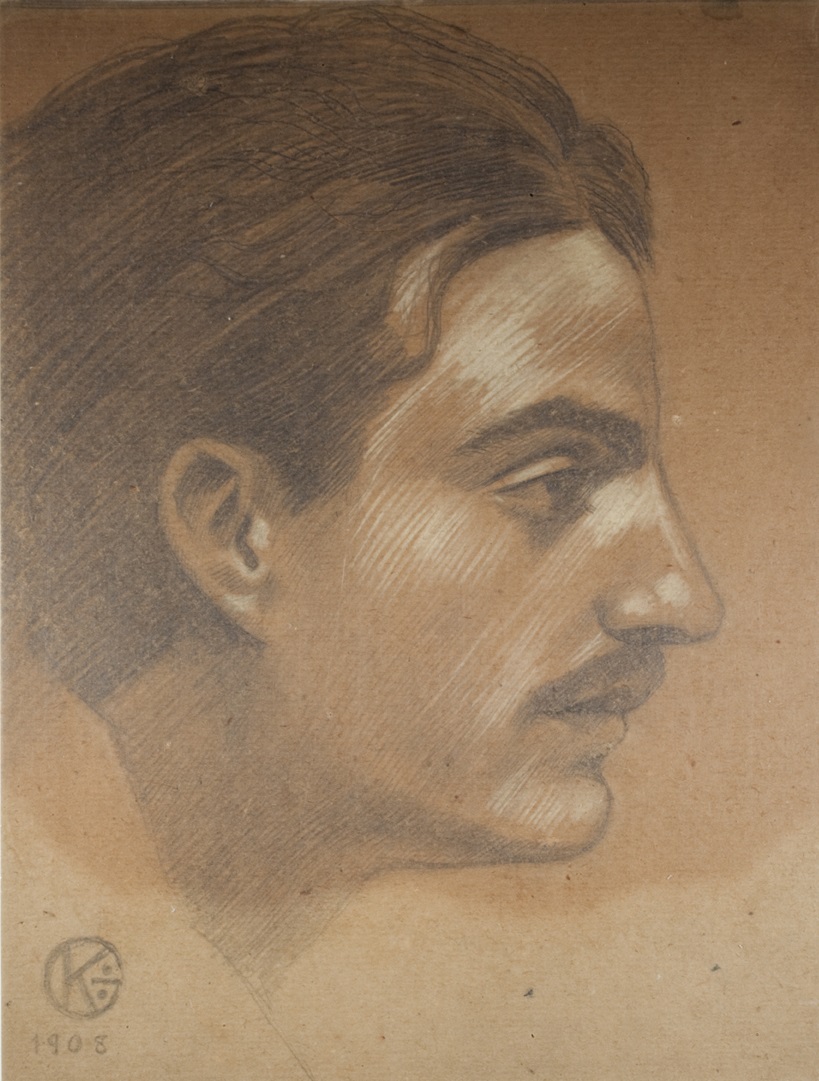
O Night of the lovers … by Kahlil Gibran
Kahlil Gibran, the Lebanese or Lebanese American, poet, is best known for his beautiful epic poem The Prophet. We have owned a copy for many years and it is a pleasure to return to it. I had always assumed that he wrote the Prophet in Arabic, and that what we have in English, is a translation. It was only when I looked for the Arabic ‘original’, that I realised that there were different Arabic versions and, in fact, the English was the original version which he himself wrote. It is remarkable for a poet to be as talented in an adopted language as in their mother tongue. That was the case for Gibran. He wrote in prose and poetry both in Arabic and in English. In the image above, we also see his talent as an artist.
He lived at the turn of the twentieth century, and although born in Lebanon, he migrated to the United States, where he spent most of his adult life. Aged 12, he arrived with his mother and siblings in the United States in 1895. He never returned to live in Lebanon, but when he died, in accordance with his wishes, his body was returned to his home town of Bsharri, in Lebanon and he left his future royalties to the town.
Below I present my first effort at translating an Arabic poem into English: Kahlil Gibran’s, Oh Night. My English translation appears next to (or above) the corresponding Arabic verse. As is typical of Gibran, its mystical orientation is evident. He first published the poem (in Arabic) in 1913 in the Arabic language periodical Al Funoon, established that year in New York.
While the ‘meaning’ of the translation is largely faithful to Gibran’s Arabic, in a number of places I depart from the literal meaning to better convey the overall idea of the thought in English: for example in the first line I translate “singer” in the Arabic with “song”. The Arabic “bride of the dawn”, I translate with “Aurora’s hem” (Aurora being the ancient Roman goddess of the dawn).
O Night, by Kahlil Gibran
أيها الليل- جبران خليل جبران
Oh Night of the lovers, of poets, of song.
Oh Night of the spirits, of ghosts, of dreams.
Oh Night of yearning, of passion recalled.
يا ليلَ العشّاقِ والشّعراء والمُنشدين.
يا ليل الأشباح والأرواح والأخيلة.
يا ليل الشّوق والصّبابة والتّذكار.
Oh Mighty One, standing ‘twixt fading west and Aurora’s hem.
Crowned by the Moon, and sword of terror in Thy hand.
In the garment of silence enwrapped, Observer of a thousand eyes, who probes the depths of life,
Hearer, with a thousand ears, attentive to cries of death and nothingness.
أيّها الجبّارُ الواقفُ بين أقزامِ المغربِ وعرائسِ الفجر،
المُتقَلِّدُ سيفَ الرّهبة، المُتوَّجُ بالقمر.
المُتّشحُ بثوب السّكون، النّاظرُ بألفِ عينٍ إلى أعماق الحياة،
المُصغي بألفِ أذنٍ إلى أنّةِ الموت والعدم.
I befriended you Oh night, until like you I became,
Until your intimate I became, until my essence I mixed with yours,
I loved you, until I became but a miniature of your being.
لقد صحبْتُك أيها الليل حتى صرت شبيهاً بك،
وألفتك حتى تمازجت ميولي بميولك،
وأحببتك حتى تحوّل وجداني إلى صورة مُصَغَّرةٍ لوجودك.
So that in the darkness of my soul, the brilliant stars scattered the night with love,
And gathered her blooms in the dawn,
And in my steady heart, the moon at times sought cloud entangled skies,
And other times, it unveiled a procession of dreams.
ففي نفسي المظلمةِ كواكبُ ملتمعةٌ ينثرها الوجد عند المساء،
وتلتقطُها الهواجسُ في الصباح،
وفي قلبي الرّقيب قمرٌ يسعى تارةً في فضاء متلبّدٍ بالغيوم،
وطوراً في جلاءٍ مفعمٍ بمواكب الأحلام.
I am like you, O Night,
Would the people care that I boast of our kinship?
Would they then (boasting) compare themselves to the Day?
أنا مثلُك أيُّها اللّيل،
وهل يحسبني الناسُ مفاخراً إذا ما تشبّهْتُ بك،
وهم إذا (تفاخرُوا) يتشّبهون بالنّهار.؟
I am like you, for we are both accused of what we are not.
I am like you in my yearning and in my dreams, in my morals.
I am like you, even if the evening does not garland me with clouds of gold.
I am like you, even if the Milky Way does not gird my being.
أنا مثلك وكلانا متّهمٌ بما ليس فيه.
أنا مثلك بميولي وأحلامي وخلقي وأخلاقي
أنا مثلك وإنْ لم يتوّجني المساء بغيومه الذَّهبيّة.
أنا مثلك وإنْ لم يرصّع الصّباح أذيالي بأشعّته الورديّة.
أنا مثلك وإنْ لم أكن ممنطقاً بالمجرَّةِ.
I am the flowing night, spreading both calm and restlessness.
And my darkness is not a beginning,
Nor is my depth an ending,
For if the spirits exalt in the light of their joy,
My soul soars above the frozen darkness and melancholy.
أنا ليلٌ مسترسلٌ منبسطٌ هادئٌ مضطرب،
وليس لظلمتي بدءٌ،
وليس لأعماقي نهايةٌ،
فإذا ما انتصبت الأرواح متباهيةً بنور أفراحها،
تتعالى روحي متجمّدة بظلام كآبتها.
I am like you, O Night, and my morning will not come, until my being ends.
أنا مثلك أيّها اللّيل، ولن يأتيَ صباحي حتى ينتهي أجلي.
Image
Self-portait, Khalil Gibran, 1905


